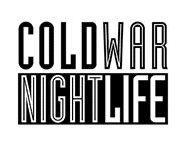“Alreet?”
The familiar Tyneside greeting is the question posed by Edvard Graham Lewis on his new album.
Best known as a member of Wire, Lewis has carved many trails in the sonic landscape as Dome, Cupol, Duet Emmo, Hox, Elegiac, and a dozen other projects. Alreet? appears under his own name. The album comes hot on the heels of his recent collaboration with an actual Geordie, Mark Spybey (Zoviet France).
The Newcastle link came about through Los Angeles-based cEvin Key (Skinny Puppy, The Tear Garden), who hosted Lewis and Spybey on one of his regular Sunday podcasts. Lewis spent time in the town; commuting from his own base in Uppsala. He had moved from England to Sweden, many years ago, to be with the Liv of his life. All of these pins in the map were joined like synapses in a creative re(Wire)ing.

The album opens with a swelling guitar tone and the observation, “You will not pass this way again.” Geography and grooves combine in “Kinds of Whether” with emphatic richness; fused by word play and rhythmic sensitivity. Pity Trent Reznor that he never managed to bottle the lightning of He Said the way he wanted. It shines from this vessel very brightly.
“Diamond Shell” finds Lewis in classic Dome territory; layering Eastern-influences sounds over a jerky rhythm. It is hard to say whether his sense of melody or sound design take priority, but both are majestic.
The magic of “Switch” is in its delicate, gliding notes. They dissolve into the ether like vapour, leaving no trails. There aren’t many songs that call out the romantic qualities of toast, but this is surely the best of them. Lewis had a hand in the most beautiful love song of all time, “Or So It Seems,” and his touch has clearly not been diminished by the forty-year interval.
Come the “Last Scene” and the Bard’s words make a theatrical entrance. “Bang” ramps up the tension like the ghost of Mark Stewart. Lewis is in full control of the soundscapes he creates, and there are touches of darkness and light that ordinarily cannot be seen by human organs.
“I Still Remember” tells a story about the passage of a bullet. This time, the geographical reference point is the third rock from the Sun. Lewis’ bag of tricks then yields a “Key Weapon” for bridal processions.
The journey ends with a synth-led glide path, landing amongst processed phrases and Lewis’ declamation of the question, “Without humanity/who the fuck are we?” It’s a rhetorical question, but one that needs to be asked.
Is it too early to nominate an Album of the Year? Alreet? sets the bar everyone else needs to aim for, over the next ten months. The clock is counting down in the space that remains.









